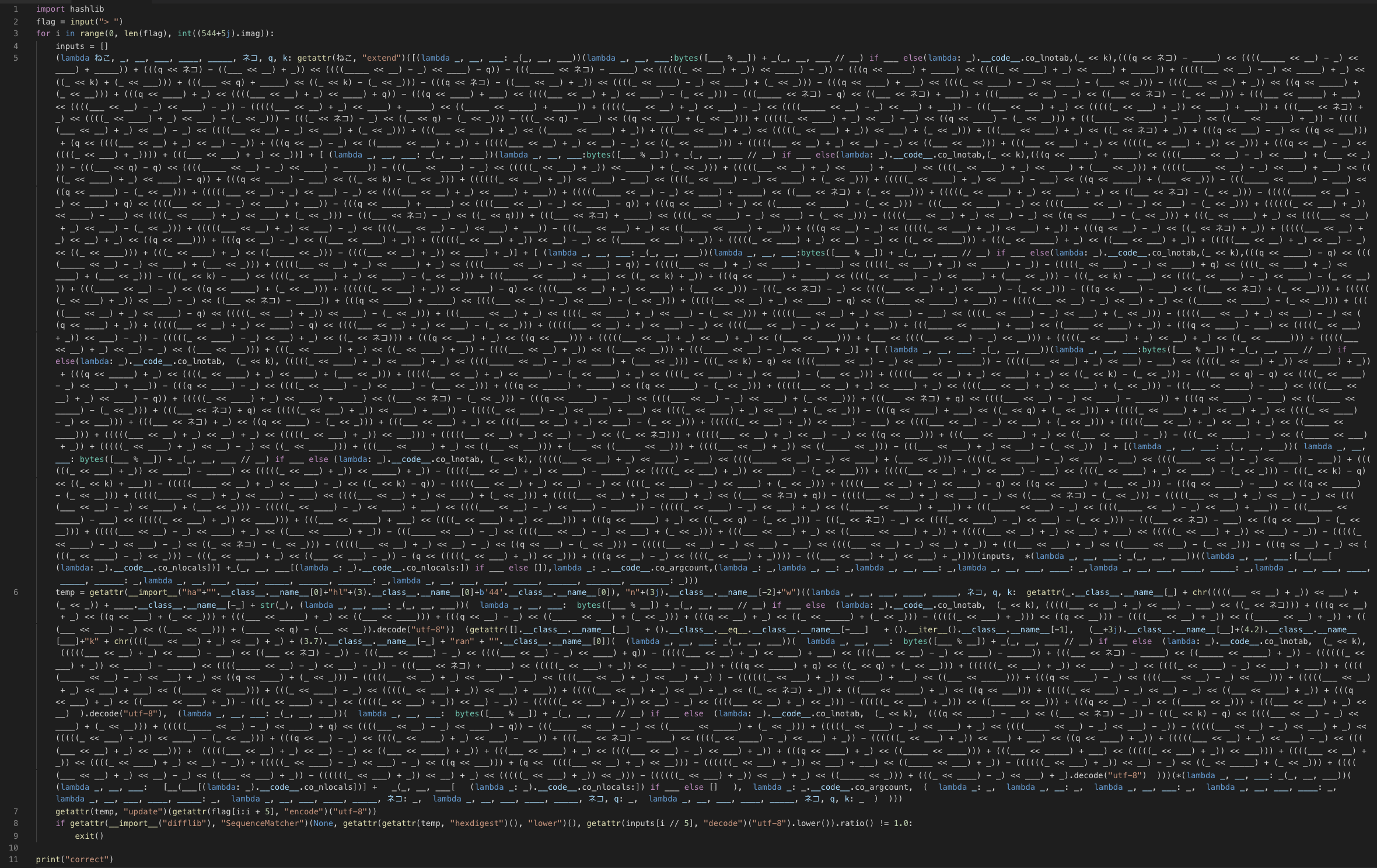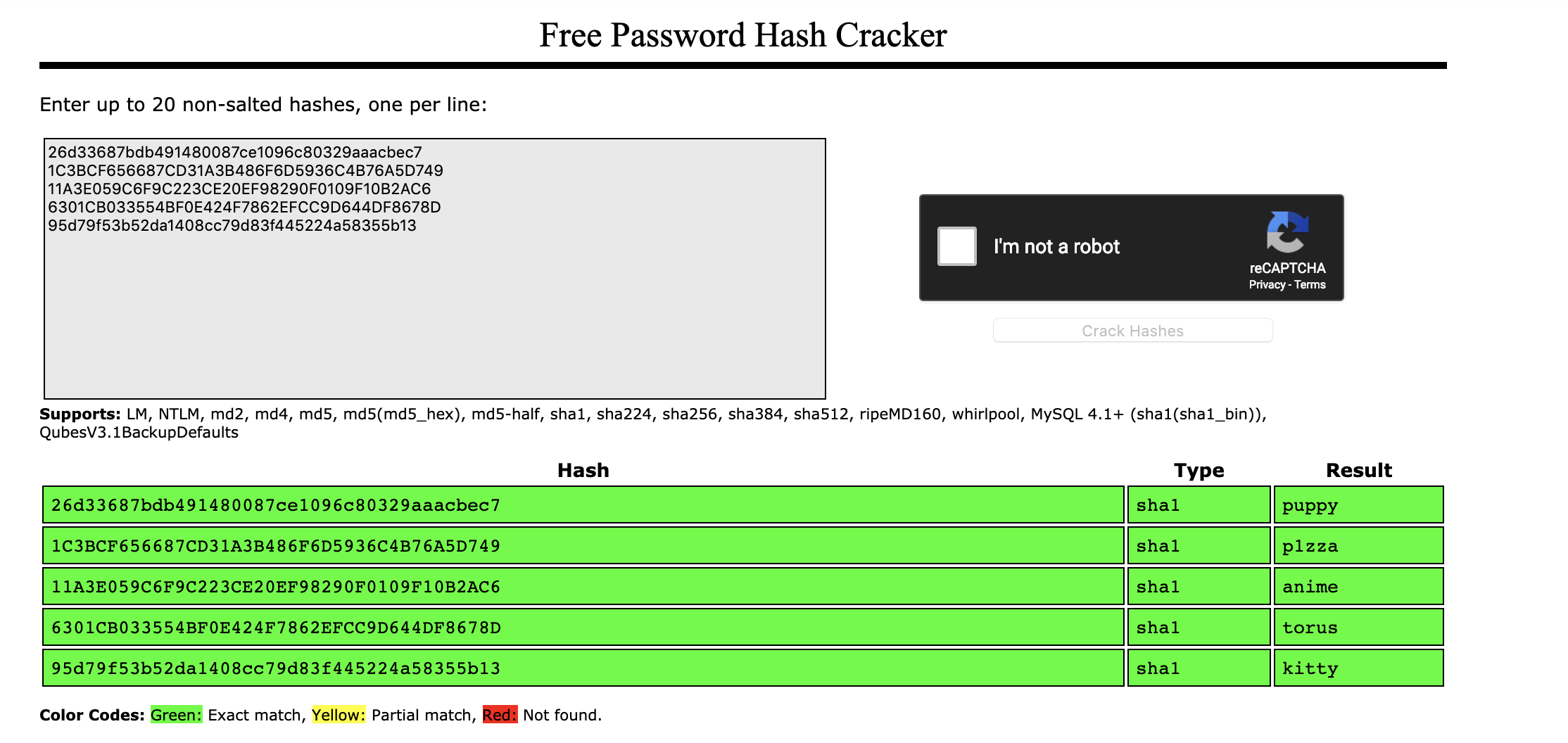simple python script (re750)
simple python script I wrote while not paying attention in graphics
by asper
We are given a python file with only 11 lines of code. Quite short isn’t it?

This most likely have been generated using onelinerizer. Check out the talk to know more about it. There is also a website with demos.
In short, this script converts a python program into a single line using lambdas. For example,
def f(x):
return x * 4
y = f(5)
print y
will be converted to
(lambda __print, __g: [[(__print(y), None)[1] for __g['y'] in [(f(5))]][0] for __g['f'], f.__name__ in [(lambda x: (lambda __l: [(__l['x'] * 4) for __l['x'] in [(x)]][0])({}), 'f')]][0])(__import__('__builtin__', level=0).__dict__['print'], globals())
Instead of diving right into reversing the whole long bunch of code, my attention was caught by the last few lines.
# reformated for better readability
if getattr(__import__("difflib"), "SequenceMatcher")
(None,
getattr(getattr(temp, "hexdigest")(), "lower")(),
getattr(inputs[i // 5], "decode")("utf-8").lower()
).ratio() != 1.0:
exit()
This can be roughly translated to
from difflib import SequenceMatcher
a = temp.hexdigest().lower()
b = inputs[i // 5].decode("utf-8").lower()
if SequenceMatcher(a, b).lower()).ratio() != 1.0:
exit()
Now, the interesting part is to find out what temp and inputs are. We can check them by printing them before the if statement.
~/ctfs/utctf19/simplepy ➤ python3 wtf.py
> aaaa
temp: <sha1 HASH object @ 0x7fcff8c43300>
input: [b'26d33687bdb491480087ce1096c80329aaacbec7', b'1C3BCF656687CD31A3B486F6D5936C4B76A5D749', b'11A3E059C6F9C223CE20EF98290F0109F10B2AC6', b'6301CB033554BF0E424F7862EFCC9D644DF8678D', b'95d79f53b52da1408cc79d83f445224a58355b13']
After a few tries, we can tell that inputs is always the same regardless of our input.
Recall that the program is in a for loop.
for i in range(0, len(flag), int((544+5j).imag)):
or
for i in range(0, len(flag), 5):
and notice this on line 7
getattr(temp, "update")(getattr(flag[i:i + 5], "encode")("utf-8"))
It is quite reasonable to say that the program takes 5 bytes of the input a time, and temp contains the sha1 hash of the 5-byte blocks. Quickly computing the sha1 hash of any string and passing it into the program verifies this assumption.
Hash cracking
Now, we know that the program splits our input into 5-byte blocks, computes their sha1 hashes and then compares them with a pre-defined set of hashes.
I went to crackstation, dumped all the hashes in inputs, and obtained the flag.

puppyp1zzaanimetoruskitty